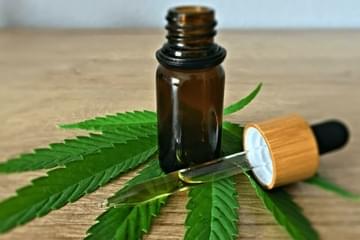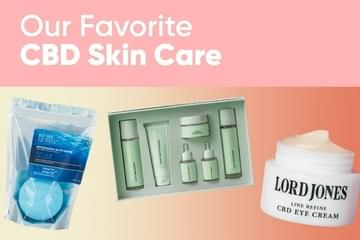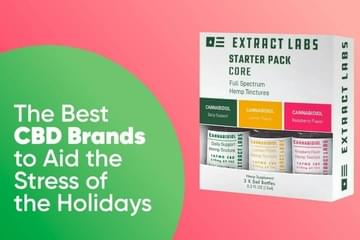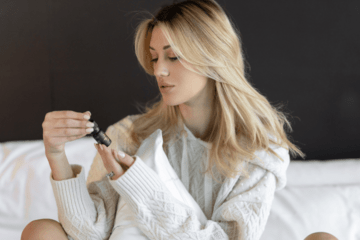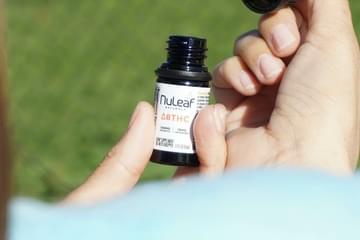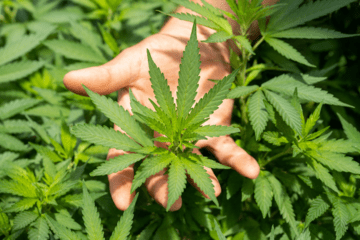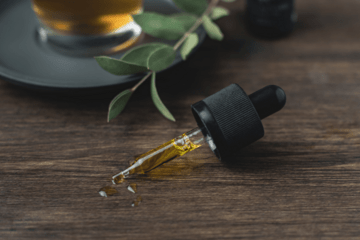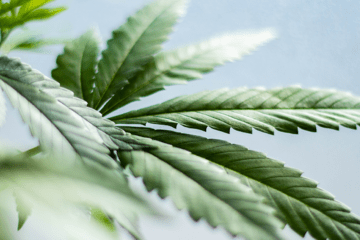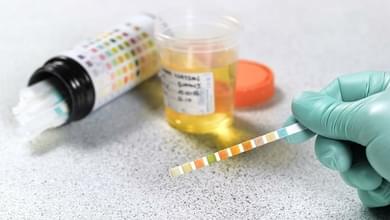
Can CBD Show Up on a Drug Test?
Published on 5/29/20
Updated May 27, 2022
Unless you've spent the last few years hiding under a rock, you've probably noticed the exploding popularity of cannabidiol or CBD. Whether it's cannabis dispensaries, health food stores, gas stations, or ice cream parlors, you can hardly walk into a store without CBD-infused tinctures, topicals, and edibles staring back at you. After all, it's no coincidence that experts project the legal CBD market will be worth $47.22 billion by only 2028.
As CBD cements its place as a household name in the health and wellness industry, questions are still swirling about the cannabinoid's social acceptability and legal standing. One of the most pressing questions is in regards to CBD and employment. After all, now that CBD is available over the counter in all 50 states, it should be impossible for you to fail a drug test due to CBD tinctures or handfuls of infused gummy bears, right? Unfortunately, it's not that simple, and we here at Where's Weed will break down why.
This article will give you all the details on CBD, how and why it would show up on a work-mandated drug test, and how to avoid a positive result from just enjoying some top-notch CBD products!
Is CBD a Drug?
Cannabidiol, or CBD, is one of many cannabinoids found naturally in the cannabis plant. Like its chemical cousin tetrahydrocannabinol (THC), CBD is known for its medicinal purposes, specifically when it comes to quelling anxiety, easing physical pain, and reducing epileptic seizures. But unlike THC, CBD does not cause intoxication or a high feeling, giving the more dormant cannabinoid a leg up when it comes to acceptance in mainstream society.
Part of the 2018 Farm Bill legalized CBD in the US alongside hemp. Because this new law designated that any cannabis plant that contains less than 0.3 percent THC qualifies as hemp, farmers in every corner of the country quickly purchased CBD-rich cannabis seeds and sewed acres of non-psychoactive hemp for production into tinctures, topicals, and the rest.
So, technically speaking, CBD isn't a drug. Neither are any other cannabinoids commonly found in a cannabis product. And on top of that, most drug tests aren't even looking for CBD in the first place. THC, on the other hand, is a different story.
Will CBD Show Up On a Drug Test?
In short, yes - but it isn't because cops or employers have it out for CBD. You have to start at the roots to get to the bottom of the CBD drug test dilemma.
CBD drug test technology isn't widely available because CBD is a relatively new cannabinoid on the scene. Most employers don't particularly care about a natural drug that doesn't get you high, so hiring departments do not typically test employees or applicants for CBD. But, just because your boss doesn't care about cannabidiol itself doesn't mean that CBD can't get you in trouble.

As we mentioned earlier, America's current CBD industry is still in its infant stages and is not yet fully regulated by federal agencies like the FDA or USDA. That means that no governing body or organization is verifying that the CBD in these products is pure or that there's CBD in them! For that reason, CBD oils, edibles, and vape cartridges that you find at head shops, health stores, and gas stations aren't always what they seem - or what the label says they are.
Despite a clear 0.3 percent THC limit set by federal law, hemp-derived CBD products have routinely been tested and contain significantly higher THC percentages than advertised. Similarly, even if a CBD product contains the legally allowed amount of THC, repeated use could still build up a higher concentration in the body. Even though you may have consumed legal CBD and never took a puff of a joint, you could still fail a drug test for THC.
That's why we love CBD Infusionz! All products on their site are tested by a third party and posted on their website for transparency.
How Much THC Triggers a Failed Drug Test?
When labs do drug screenings for THC, they are not looking for just the presence of the drug but instead a level that would indicate purposeful consumption. For frequent CBD users who may have consumed uncertain quantities of THC, the difference between producing a positive or negative test can often rely on what those limits are and what type of drug test you are given.
In urine tests, screeners only report positive tests if THC concentration eclipses 50 nanograms per milliliter. In layman's terms, urine tests can still turn up positive up to 15 days after the last consumption, even if that consumption wasn't on purpose.
In THC tests performed using saliva or blood, the cut-off value is much lower, anywhere from 1 to 4 nanograms per milliliter. Practically, THC is only detectable by those methods only 1-3 days after last consumption. THC tests performed on hair are significantly more sensitive at the other end of the spectrum, with THC metabolites still showing up in screenings up to 90 days after last consumption.
What Kinds of CBD Are More Likely to Result in a Failed Drug Test?
Not all CBD products are created equally when it comes to purity standards. As we'll lay out in detail below, there are several different types of CBD to choose from, each with differing levels of THC and other active cannabinoids aside from CBD found in them.

Full Spectrum CBD
As the name suggests, full-spectrum CBD contains the most comprehensive array of cannabinoids, terpenes, and other natural chemicals. Using high-CBD hemp flower strains, full-spectrum CBD extracts are a concentrated version of the entire plant. Full-spectrum CBD products must contain less than 0.3 percent THC to qualify as federally legal hemp. Because the industry still has such little regulatory oversight, plenty of products containing too much THC have made it to retail shelves.

Broad Spectrum CBD
On the other hand, Broad-spectrum CBD shares a similar extraction method as full-spectrum concentrates, but in an additional step of processing, manufacturers remove as much THC as possible. By removing THC after extraction, producers can retain the terpenes, minor cannabinoids, and CBD content of a full spectrum concentrate but with less potential for failed THC tests or accidental intoxication.

CBD Isolate
Finally, CBD isolate is processed even more thoroughly than broad-spectrum oils, leaving pure CBD crystals, powder, or oils that can achieve up to 99 percent purity. Products made with CBD isolate carry the lowest risk of inadvertent THC consumption and are least likely to cause a failed drug test. Because isolates are pure CBD, they lack the entourage effect found in full and broad-spectrum hemp products.
So if you're still wondering, 'Does CBD show up on a drug screening?' the technical answer is no. But until the US government steps in to properly regulate the hemp industry, CBD products sold in head shops, grocery stores, and gas stations can still contain enough THC to trigger a failed screening - even if they don't get you high.
And while legislation and state-level rules are being implemented, like in Philadelphia, where drug screening for cannabis as part of employment is banned, not everywhere follows the same policy. Even businesses in recreational states like Colorado can still drug test their employees. Fair or not, that's just going to be how it is until there's some comprehensive, federal-level successful legalization effort of cannabis.
To make sure you're all clear at your next HR meeting, only purchase third-party lab-tested CBD products, like CBD Infusionz, and do your homework before buying.
Do you consume CBD and worry about future drug tests? We want to hear your story in the comments below!









